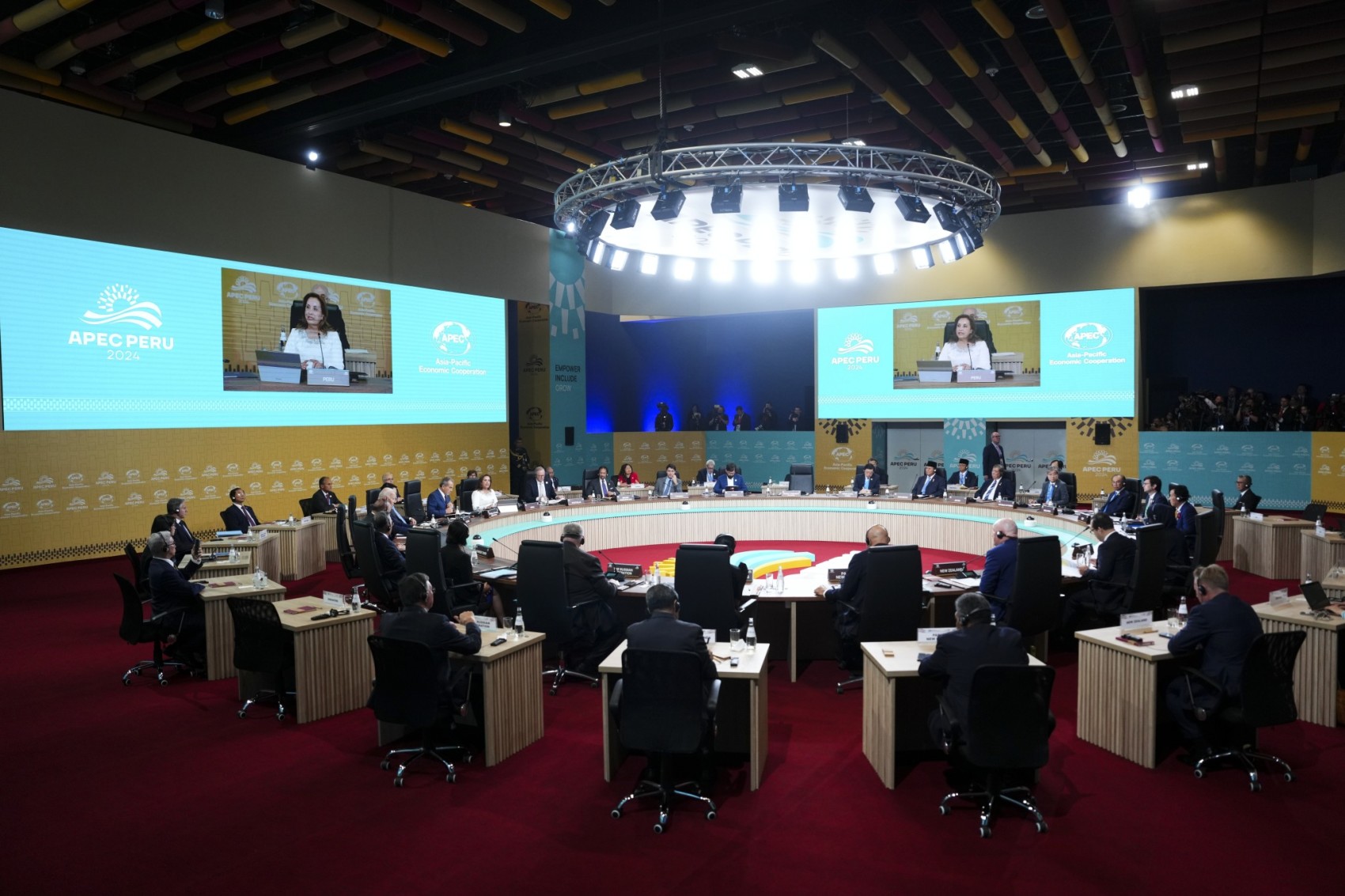Headline: APEC Summit in Peru: Global Leaders Tackle Economic Challenges Amid Protests
Leaders of 21 Pacific Rim countries convened Friday in Peru for the Asia-Pacific Economic Cooperation (APEC) summit, a pivotal gathering as the world anticipates the policy shifts that may accompany the new U.S. administration. With nearly two-thirds of global GDP and half of the world’s trade represented, the APEC forum serves as a critical platform for addressing economic challenges, including inflation and inclusive growth, amidst growing geopolitical tensions.
A Historic Gathering in a Turbulent Climate
The APEC summit marks one of the final global events for outgoing U.S. President Joe Biden, who participates alongside key figures like China’s President Xi Jinping, Canada’s Prime Minister Justin Trudeau, and Japan’s Prime Minister Shigeru Ishiba. The summit’s dialogue comes at a time when the ramifications of a Donald Trump election victory are at the forefront of discussions, leaving global leaders to ponder the future of international cooperation and trade.
Peru’s President Dina Boluarte opened the meeting by emphasizing the urgent need for inclusive growth to reduce informal labor in APEC economies. "Our objective is to level the playing field, providing all the necessary tools for inclusion in social, financial, and commercial spaces," she stated. Boluarte’s remarks highlight the pressing local economic disparities and the challenges this gathering seeks to address.
Addressing Global Economic Pressures
Throughout the day, leaders engaged in closed-door discussions focused on pressing issues, including climate action, global infrastructure, and counter-narcotics efforts. Critics and analysts, however, anticipate that Biden’s influence may be overshadowed by Xi, especially following his recent inauguration of the Chancay port, a $1.3 billion development set to revolutionize trade routes between South America and China.
In a notable step towards addressing regional economic concerns, officials indicated that the Chancay port will significantly cut shipping times to China, reflecting a trend towards deepening trade ties between Latin America and China—a relationship that has expanded significantly over the past two decades. Yet, the port’s development has not come without controversy. Local fishermen express concerns that the megaport threatens their livelihoods, casting a shadow over the celebration of its inauguration.
Local Voices: Protests Amid Economic Discontent
While dignitaries mingled inside the convention center, tensions boiled over outside. Protests erupted in the San Borja neighborhood of Lima, as demonstrators voiced their frustrations over government corruption and a pervasive surge in gang-related violence. A heavily fortified police presence failed to deter demonstrators, who are demanding that President Boluarte take decisive action to address crime in the area.
“Why would we want APEC here when the investment is just going to line their pockets?” questioned tour guide Maria Melendez. Her sentiments echoed among the crowd, which highlighted a growing disconnect between high-level discussions and the everyday realities faced by many Peruvians.
Mia Rivera, holding a portrait of ousted former president Pedro Castillo, remarked on the low turnout of protesters: “I think the heavy police presence and memories of the violent crackdown against demonstrators last year have made many afraid to join us.”
The Way Forward: Engaging Business Perspectives
As the summit progressed into the afternoon, APEC leaders convened with members of the group’s business advisory council. The council, which met prior to the summit, urged APEC economies to prioritize inclusive growth, particularly focusing on small and medium-sized enterprises, many of which are led by women and Indigenous entrepreneurs.
Council chairwoman Julia Torreblanca remarked, “While the global economy remains resilient, APEC economies are grappling with persistent inflation, economic disparities, and the urgent need to increase investments for a green, climate-resilient future.” These discussions are critical, as they seek to align business interests with broader socio-economic goals.
Broader Implications for the Global Landscape
The outcomes of this APEC summit will reverberate far beyond the walls of the convention center. As Biden prepares to leave office, his engagement at APEC and subsequent meetings in Brazil for the Group of 20 will shape international dialogue on crucial issues such as support for Ukraine amid ongoing conflict and the escalation of tensions in the Middle East.
Meanwhile, the degree to which Xi successfully navigates the discussions in Peru could signal a shift in economic leadership within the region, reinforcing China’s expanding influence and the reorientation of supply chains following the adoption of new trade routes.
As leaders wrap up their discussions, the world will be listening closely to the promises made and the strategies outlined that could significantly alter the economic landscape in the Asia-Pacific region.
The APEC summit not only sheds light on the urgent needs for economic inclusivity and sustainable growth but also reflects the deep-rooted discontent among local populations grappling with the realities of their governments’ decisions.
Your Voice Matters
We encourage readers to share their thoughts on the impacts of global summits like APEC on local economies and communities. What are your perspectives on leadership and governance in the face of economic turbulence? Engage with us in the comments below!
For more information on APEC and related events, join our community discussions and explore our articles on global economic trends.
Note: This article incorporates the latest updates and highlights from the APEC summit, focusing on the intersection of global economic discussions and local realities. Interested readers are encouraged to check out more in-depth analyses available on our website.

